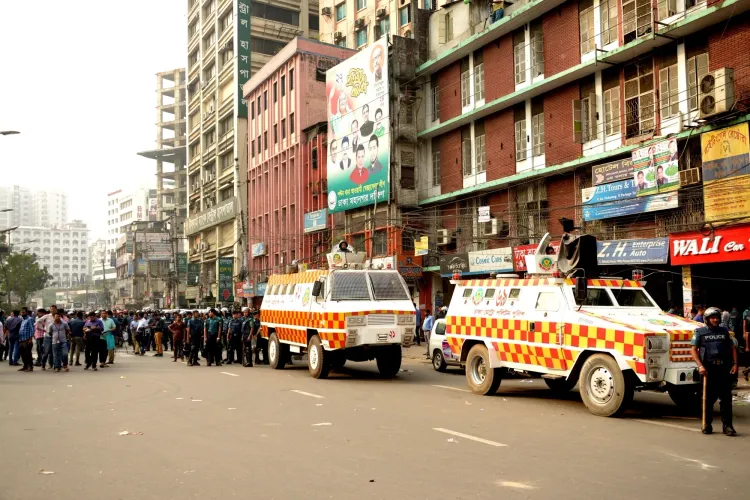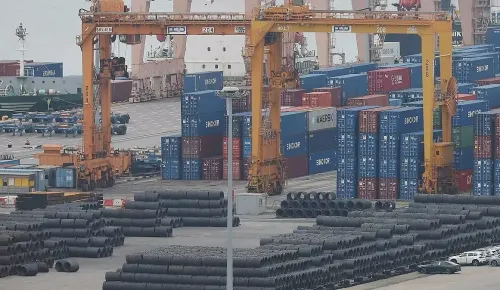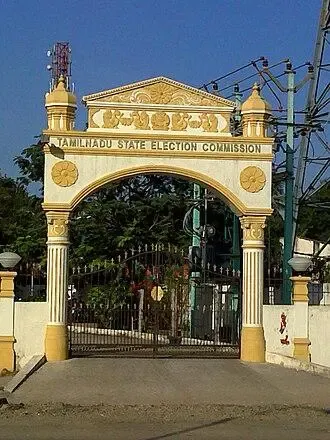Why Did Bangladeshi Police Arrest Five Leaders of the Awami League?

Synopsis
Key Takeaways
- Five Awami League leaders have been arrested in Dhaka as part of a crackdown by the police.
- The arrests are seen as part of a broader suppression of political dissent under the interim government.
- The government is considering demands to ban the Awami League party.
- Legal actions are underway against those arrested, raising concerns about political freedoms.
- The international community is watching the developments closely.
Dhaka, May 10 (NationPress) Amid increasing repression of the Awami League party under the transitional government led by Muhammad Yunus, Bangladeshi authorities detained five party leaders and their associates from various locations throughout Dhaka, local media has reported.
The detained individuals include Ramzan Ali, aide to former MP and Pallabi Thana Awami League vice-president Ilias Mollah; Md. Alamgir, vice-president of Mohammadpur Thana Swechchhasebak League; Russell Al Jobayer, organising secretary of Gulshan Thana Chhatra League; Mehedi Hasan, general secretary of Dhaka Metropolitan Ward 66 Jubo League; and Abdul Quader, former MP from Muradnagar, Comilla, who was nominated by the Awami League, as confirmed by the Dhaka Metropolitan Police (DMP).
In a statement released on Friday, the DMP indicated that cases have been filed against the arrested individuals at multiple police stations on specific allegations.
According to law enforcement, these individuals were reportedly involved in orchestrating and attempting to incite public panic by organizing and disrupting law and order, as well as jeopardizing national stability through unexpected processions across various parts of the capital. The authorities further stated that legal proceedings against these individuals are underway.
Recent reports indicate that the police have apprehended several Awami League members for conducting flash rallies in support of former Prime Minister Sheikh Hasina.
In the meantime, the interim government announced on Friday that it is "seriously contemplating the requests" made by various political entities, organizations, and the populace to prohibit the Awami League party led by Hasina.
"The government has already initiated discussions with political parties regarding this matter and will reach a decision shortly after consultations. This discussion also includes consideration of the UN report concerning the terrorist activities associated with the leaders and supporters of the Awami League," stated the interim government.
Moreover, former President Abdul Hamid departed the country on Thursday, months after Hasina's removal from power.
Following the fall of the Awami League government, legal action was also initiated against Hamid, Hasina, and her family in connection with an attack and shooting during a demonstration in Kishoreganj amid a nationwide student movement.
Since taking power in August last year, the Yunus-led administration has issued multiple arrest warrants targeting Hasina, her relatives, and Awami League supporters.
Hasina's abrupt exit last August was perceived globally as a significant blow to the country's democratic framework. The interim government is facing substantial criticism for providing refuge to radical and extremist Islamic groups.









